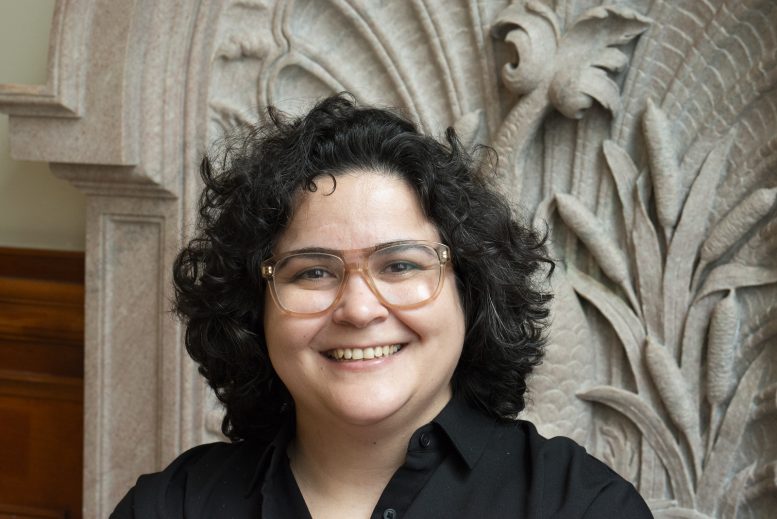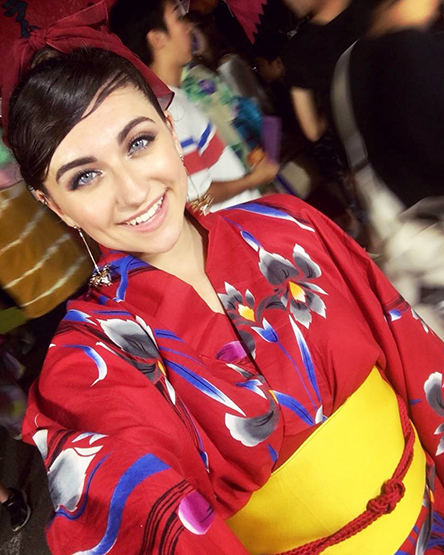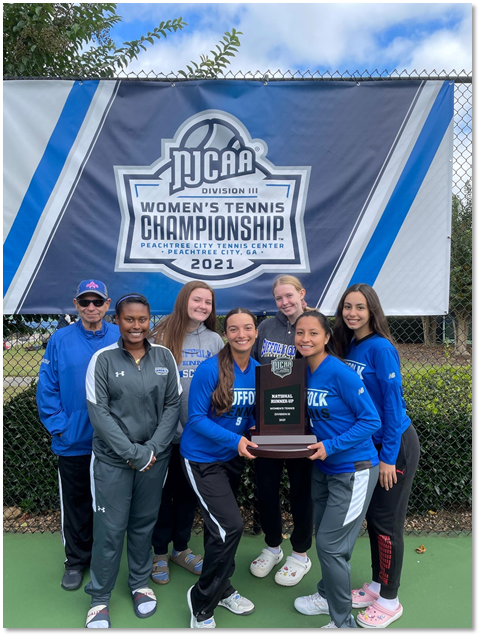Karen Santos pursued her passion for Latin American literature into a CUNY Graduate Center Ph.D. program.
By Emily Blackburne
Special to Campus News
Three years ago, Karen Santos was what she termed a typical student at Borough of Manhattan Community College. A recent immigrant from Cuba, she met fellow students who spoke like her and who rushed to class after their work shifts just like her.
“But I was committed to my dreams of an education,” she said.
And she has stayed true to them. Last fall, two years after graduating from BMCC and seven years after arriving in the U.S., she started a Ph.D. in Latin, Iberian, and Latino Cultures at the Graduate Center. Along the way, she sharpened her scholarly interests and considers herself lucky to have found a doctoral program that suits her curiosity and her cultural background, she says.
Santos first considered getting a Ph.D. as an undergraduate. “I knew I wanted to study literature, focusing on Latin America and the Caribbean, and that teaching is part of my path,” she said. “Coming from a CUNY community college, the Graduate Center was always present.”
At BMCC, she said, “I found inspiring professors who met my commitment and supported me throughout my time there, pushing me to explore my path forward.”
Santos was selected to participate in the Gallatin Undergraduate Initiative for Discovery in Education (GUIDE) program, a partnership between New York University and BMCC to prepare high-performing students who are committed to social justice to matriculate into NYU’s Gallatin School of Individualized Study. She received a full scholarship to attend Gallatin, which she called an amazing experience. She met people there who were studying climate change and poetry, ableism and patient-focused politics of care, historical memory, and public policy.
She also honed her interest in Latin American and Caribbean literature and in affect theory. At the Graduate Center, she is exploring this theory, which focuses on emotions and affects in contemporary Latin American and Caribbean literature. Specifically, she said, she is curious about questions such as: What are the possibilities and limitations of art in addressing human rights issues? How do sensations and emotions relate to objects? Should thinking about feelings and emotions matter?
She remains heavily influenced by her life in Cuba. “Sometimes I feel I’m still growing up there, like I never left,” Santos said. She visits as often as possible as her friends and family still live there. Cuba, she added, “is what shapes the way I walk through the world, and it is what guides my intellectual curiosity.”
She describes her Graduate Center program as “a space that fosters collaboration” with “exceptional faculty and students.” She was moved by the support faculty and students offered from the start.
Santos urges community college students to persist in pursuing their interests. “If you have an idea, a project, or anything that you're passionate about, go for it,” she said. “Focus on the process, not on the outcome. Let others tell you no, but don't close yourself up before trying. Never walk away from a closed door before even knocking.”
Emily Blackburne is a senior at Hunter College studying English literature.








Facebook Comments